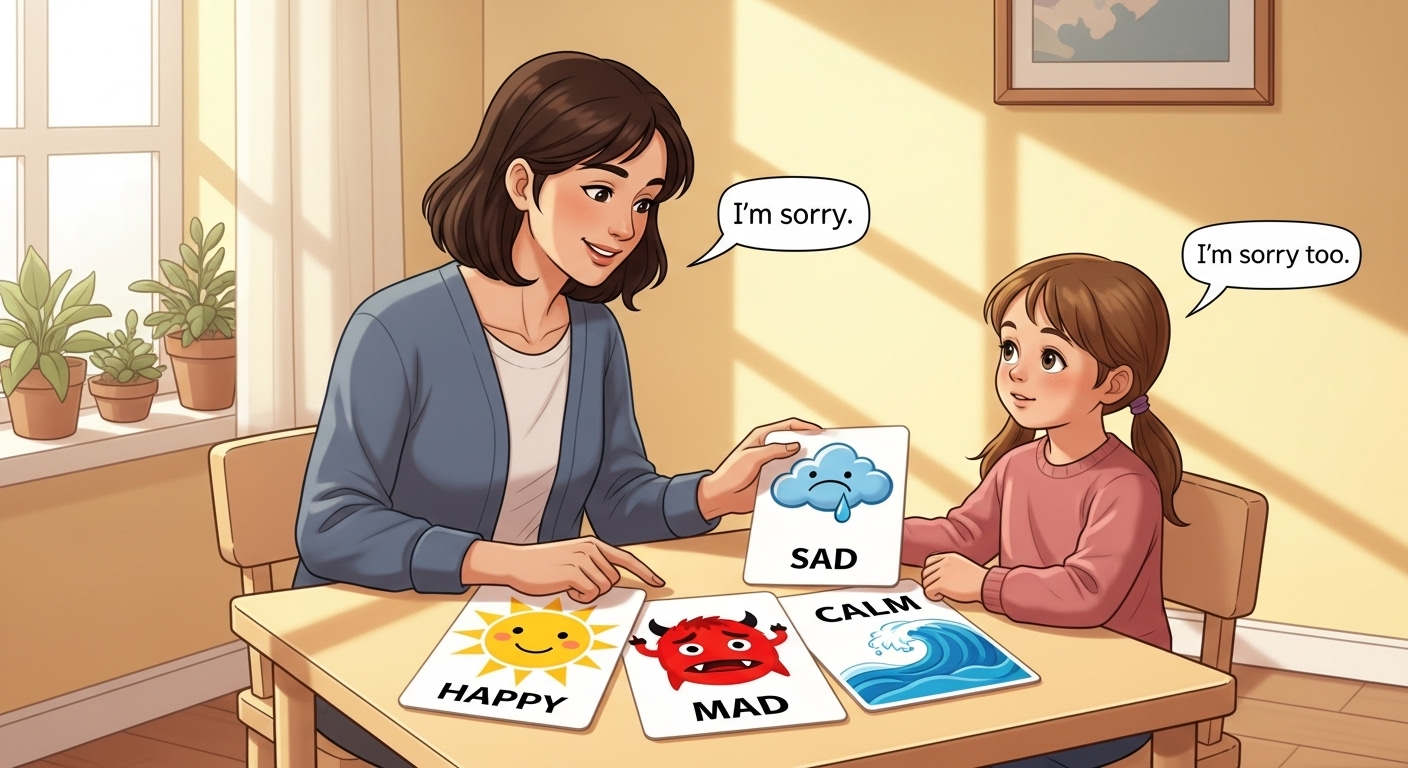Avoiding Anger: How To Discipline With Patience And Prayer

You love your children fiercely, but sometimes the gap between love and action feels dangerously narrow when disobedience shows up. You want to guide them, teach them right from wrong, and shape character — without letting anger take the wheel. This article walks you through practical, biblical, and emotionally wise ways to practice parenting patience: how to slow down, rely on prayer, and discipline in a way that builds trust instead of fear.
Why Anger So Often Steals the Parenting Moment
When a child bursts with disobedience, your heart races and your voice tightens — that instantaneous reaction is normal. But repeated, reactive anger can damage the trust you’re trying to build, erode the respect you want to teach, and model exactly the self-control you don’t want them to emulate. Parenting patience is not passivity; it’s an active, intentional posture that prioritizes long-term growth over short-term compliance.
The Bible recognizes how quickly emotions can overwhelm us. James encourages quick listening, slow speaking, and slow anger as disciplines for daily life: James 1:19-20. When you practice parenting patience, you’re not abandoning discipline — you’re disciplining yourself first so your discipline of your child will be fair, consistent, and restorative.
Understanding the Roots of Your Anger

Before you can manage anger, you’ve got to understand where it comes from. Anger often hides deeper layers: exhaustion, shame, fear, unmet expectations, or unresolved wounds from your own past. Parenting patience begins when you stop treating anger as a personality trait and begin treating it as a messenger — pointing to something you need to address inside yourself.
Proverbs gives a clear picture of the consequences of unchecked anger: “A fool gives full vent to his spirit, but a wise man quietly holds it back.” See Proverbs 29:11. You can create a family culture of safety and correction only when you learn to interpret your emotional signals without letting them control your response.
Your Emotions Are Signals — Not Dictators
When your child tests a limit, your adrenaline spikes and your brain shifts into threat mode. That’s biology, not failure. Recognizing that your first response is an automatic alarm helps you step back and decide who’s leading: your impulses or your intentions. Parenting patience means training those automatic moments into brief, wise pauses that allow prayerful clarity.
Recognize Your Triggers
Make a list (mentally or physically) of situations that consistently set you off. Is it repetitive disobedience? Mess when you’re already running late? Sibling bickering during meal prep? Once you identify patterns, you can plan strategies: moments to step away, scripts to use, or spiritual practices to call on. Ephesians reminds you that anger, if not managed, can lead to harm: “In your anger do not sin.”
What the Bible Says About Discipline, Patience, and Love

Scripture gives you both the why and the how. You’re called to train and discipline without provoking bitterness or crushing a child’s spirit. Paul writes to fathers: “Do not exasperate your children; instead, bring them up in the training and instruction of the Lord.” See Ephesians 6:4. This verse balances accountability with tenderness — a model for parenting patience that combines firmness and compassion.
Discipline grounded in love produces fruit described in Galatians as character qualities like patience, kindness, and self-control. Those are the deeper aims of discipline, not mere obedience: Galatians 5:22-23. When you approach correction from that end, your tactics shift from punitive to formative.
Discipline vs. Discipline That Wounds
There’s a difference between correction that shapes and correction that scars. Colossians gives a cautionary word: “Fathers, do not embitter your children, or they will become discouraged.” See Colossians 3:21. Your goal is to teach, not to hurt. Parenting patience keeps that goal front and center. You correct behaviors while protecting relationships.
Parenting Patience Is a Spiritual Practice
Prayer and the Holy Spirit are allies in your parenting. Patience is a fruit of the Spirit; it grows as you rely on God, not solely on your own reserves. The Bible repeatedly links patience with wisdom and peace, steering you toward a gentler style of correction that lasts.
Practical Steps to Cultivate Parenting Patience

You don’t become patient by wishing; you become patient by practicing a set of habits. Here are concrete steps you can begin today to build sustainable parenting patience in the rhythm of discipline and prayer.
Pray First, Act Second
Before you respond, even for thirty seconds, take a breath and a quick prayer. It’s a simple habit: “Lord, give me wisdom and calm.” Philippians encourages you not to be anxious but to bring requests to God in prayer: Philippians 4:6. That short moment of prayer can shift your physiology and re-center your purpose.
Breathe, Pause, Empathize
A slow breath changes everything. When you feel anger rise, use a breathing technique: inhale to a count of four, hold for four, exhale for four. As you breathe, try an empathic statement: “I can see you’re upset” or “You’re having a hard time right now.” Empathy lowers defensiveness and models emotional literacy — an essential piece of parenting patience.
Set Clear Expectations and Consistent Consequences
Children thrive on predictable boundaries. If you’re inconsistent, you’re asking for misbehavior. But boundaries are most effective when delivered calmly and explained briefly. Proverbs endorses the wisdom of measured correction: love includes clear teaching and consistent consequences. See also Proverbs 22:6.
Choose Natural and Logical Consequences
When possible, let consequences flow naturally from the behavior rather than relying on punitive, humiliating punishments. If a child refuses to pick up toys, they lose the toy privilege for a set period; if they refuse to eat dinner, offer a simple alternative at the next meal. This approach teaches responsibility without escalating conflict.
Time-In Instead of Time-Out
Time-in is a practice where you stay with your child during a teachable pause rather than sending them away. You model calm, help them name feelings, and coach them toward better choices. This fosters connection while maintaining accountability — a practical expression of parenting patience.
Repairing Quickly: The Art of Restoring a Relationship After You Lose Your Cool

You’re human. Even with all your best preparations, there will be times you lose your temper. The important thing is how quickly and sincerely you repair the breach. Repair models humility and teach children how to reconcile.
Ephesians gives you a helpful script when emotions get messy: “Get rid of all bitterness, rage and anger… Be kind and compassionate to one another, forgiving each other, just as in Christ God forgave you.” See Ephesians 4:31-32. A simple apology — “I’m sorry I raised my voice; I should have handled that differently” — goes a long way. It doesn’t weaken your authority; it strengthens your integrity.
Make Amends, Teach a Better Way
After apologizing, briefly explain what you’ll do differently next time and invite the child to do the same: “I’ll take a minute to pray and breathe first. What will you do next time you feel upset?” This invites joint responsibility and models restorative discipline rather than punitive dominance.
Creating a Family Rhythm of Prayer and Practice

Parenting patience is easier when it’s built into the rhythms of family life. Routines anchor children; prayer anchors you. When prayer is regular, you’re more likely to remember to invite God into tense moments and less likely to default to anger.
Simple Routines That Build Resilience
Short, predictable practices around mealtime, bedtime, and transitions build emotional safety. Use a short mealtime prayer, a two-minute debrief before bed that praises efforts and corrects gently, and a quick breath-and-prayer signal before outings. These tiny spiritual habits multiply your parenting patience by creating predictable patterns for both you and your children.
Family Prayer for Growth
Incorporate brief prayers that ask for hearts to soften and ears to listen. Teach your kids to pray for help with self-control and to say sorry. When prayer is practiced as a normal, corporate habit, it becomes a natural resource for everyone during stress.
Teaching Children About Emotions and Apologies

Your goal isn’t just obedience — it’s emotional literacy. When children learn to recognize and name feelings, they’re less likely to act them out destructively. You can teach them language for emotions and simple tools for calming themselves.
Scripts and Short Lessons
Use one-sentence teaching moments: “When your body feels tight, your brain thinks something bad is happening. Take three slow breaths.” Encourage phrases that help children self-regulate: “I need a minute” or “I’m feeling mad, I’ll take a break.” These tools become part of your parenting patience toolkit because they reduce conflict before it escalates.
Apology and Reparation
Teach apologies that include recognition and restitution: “I’m sorry I hit. I’ll ask to play again and share.” Help young children practice these steps in role-play when things are calm. Jesus taught the importance of reconciliation: “If you are offering your gift at the altar and there remember that your brother has something against you, leave your gift there… First go and be reconciled to your brother.” Modeling and practicing reconciliation prepares children to take responsibility in real moments.
When You Need External Help: Counseling, Community, and Prayer Support

Sometimes your struggles with anger and discipline go beyond daily tactics. If you find repeated loss of control, patterns of harsh punishment, or deep anxiety about parenting, seek help. You aren’t failing — you’re acknowledging a need and building a support network.
Find a Safe Counselor or Pastor
A Christian counselor, trusted pastor, or support group can offer tools you haven’t tried and spiritual guidance tailored to your story. Galatians encourages carrying one another’s burdens, a reminder that community is part of spiritual health: Galatians 6:2. Don’t be afraid to reach out for professional help if your anger is frequent or intense.
Look for Practical Support
Practical help can include babysitting swaps, parenting classes, or small groups that practice accountability and prayer together. Psalm 34 reminds you that the Lord is close to the brokenhearted; you’re not alone in seeking healing: Psalm 34:18.
Long-Term Benefits of Choosing Parenting Patience

Choosing parenting patience changes family trajectories. Children raised with calm, consistent discipline tend to show better emotional regulation, stronger trust with caregivers, and a greater likelihood of modeling healthy relationships. The consistency of patient discipline plants character traits that last a lifetime.
Modeling the Fruit of the Spirit
When you intentionally practice parenting patience, you’re modeling the fruit of the Spirit in a tangible way: patience, kindness, and self-control. These repeated small acts shape your child’s internal landscape far more than a single punitive event. Proverbs notes how gentle words can turn away anger and create safety: “A gentle answer turns away wrath, but a harsh word stirs up anger.”
A Family Marked By Grace
Ultimately, the goal is to create a family where correction is an avenue for growth and restoration, not shame. That kind of culture is a gift you give your children — a legacy of faith, character, and relational health.
Quick Tools and Short Prayers You Can Use Right Now
When you need immediate help, simple scripts and prayers are powerful. Keep these on hand — tucked into your phone, your heart, or a sticky note.
Short breathing script:
- Inhale 1-2-3-4, hold 1-2-3-4, exhale 1-2-3-4.
One-sentence prayers:
- “Lord, help me respond with calm.” (Use before speaking.)
- “Jesus, give me gentleness.” (Use in the heat of the moment.)
- “God, give me wisdom to discipline in love.” (Use after a conflict.)
A brief restorative script to use with your child:
- Parent: “I’m sorry I lost my temper. I want to help you learn. Let’s take a minute to calm down, then we’ll talk about what to do next.”
These tiny practices accumulate. Each time you choose prayer and pause over instinctive anger, you strengthen your habit of parenting patience.
Final Encouragement
You’ll have setbacks. You’ll mess up. That’s part of the human process — and the gospel changes how you move through failure. Grace doesn’t excuse complacency; it invites you to try again with humility and trust. Parenting patience is a daily discipline of reliance on God, clear habits, and a willingness to repair relationships quickly. Over time, those choices will shape a household defined by love, integrity, and character.

Explore More
For further reading and encouragement, check out these posts:
👉 7 Bible Verses About Faith in Hard Times
👉 Job’s Faith: What We Can Learn From His Trials
👉 How To Trust God When Everything Falls Apart
👉 Why God Allows Suffering – A Biblical Perspective
👉 Faith Over Fear: How To Stand Strong In Uncertain Seasons
👉 How To Encourage Someone Struggling With Their Faith
👉 5 Prayers for Strength When You’re Feeling Weak

📘 Jesus and the Woman Caught in Adultery – Grace and Mercy Over Judgement
A powerful retelling of John 8:1-11. This book brings to life the depth of forgiveness, mercy, and God’s unwavering love.
👉 Check it now on Amazon 🛒💥
🔥 “Every great message deserves a home online.” 🌍💬🏡
Don’t let your calling stay hidden. Start a Christian blog or website using Hostinger — with 99.9% uptime, a free domain, and SSL, your voice can shine for God’s glory anytime, anywhere.
💥 Begin today. 🛒 Try it RISK-FREE! ✅
✝️ “Your body is God’s temple — care for it with purpose.” 💪💖🏛️
Renew your energy and restore balance naturally. Mitolyn helps support a healthy metabolism, giving you the vitality to live out God’s calling with strength and confidence.
🔥 Unlock Your Metabolic Power! ⚡Burn More Calories & Feel Great With Mitolyn. 💪
👉 Start Today. 🚀 Check Price Now. 🛒💰
💰 As a ClickBank & Amazon Affiliate, I earn from qualifying purchases.
📖 Acknowledgment: All Bible verses referenced in this article were accessed via Bible Gateway (or Bible Hub).
🚀 Want to explore more? 👉 Dive into our new post on Why Jesus? and experience the 🔥 life-changing truth of the Gospel!





